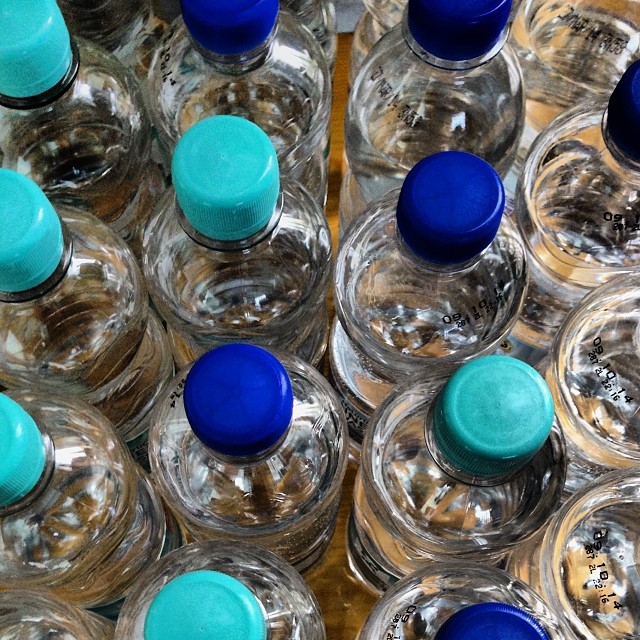The challenge
Over 300 million tonnes of plastic is created globally each year yet only 9 per cent of this plastic waste is recycled. Plastic waste also leaks into the environment and creates significant problems for terrestrial and marine ecosystems and species.
Both Australia and India are aiming to reduce plastic waste by driving innovation and enabling new technologies and business models that achieve this. By doing so, both countries can reduce the environmental and health impacts of plastic waste and enable new growth industries and employment in a zero plastic waste economy.

In June 2020, Australia and India agreed to collaborate on an ambitious program to reduce plastic waste. In this context, the Australian Government announced the India-Australia Industry and Research Collaboration for Reducing Plastic Waste which aims to catalyse innovation in the plastic supply chain and to create a circular model for plastics.
Our response
We produced a National Circular Economy Roadmap for Reducing Plastic Waste in India to identify opportunities to build a circular economy in India, including increasing recycling capabilities.
The roadmap outlines future opportunities of plastic recycling and for industrial redesign and the creation of new materials, products, processes and business models that further circularity.
We led an international team of Australian and Indian premier research institutes to develop the roadmap including the University of New South Wales, the University of Technology Sydney Institute for Sustainable Futures, The Energy and Resources Institute (TERI), the Council of Scientific and Industrial Research-National Environmental Engineering Research Institute (CSIR-NEERI), and Development Alternatives.
The three-year research aimed to:
- Develop metrics and establish datasets that assess the magnitude of the plastics waste problem in India and how quickly it is growing
- Identify the main supply chains for different types of plastic and the associated waste flows and their destination and leakages to waterways and oceans
- Identify new industries and enabling sector change through new infrastructure, regulation, market access, skills, culture change and strategic planning achieved through the roadmap process
- Create innovation capacity by establishing demonstration projects for plastic recycling and industrial redesign by local and Australian industry partnerships.
The research collaboration involved working closely with industry, government and community stakeholders to evaluate the economic and policy implications of a circular economy for plastics in India.
The challenge
Over 300 million tonnes of plastic is created globally each year yet only 9 per cent of this plastic waste is recycled. Plastic waste also leaks into the environment and creates significant problems for terrestrial and marine ecosystems and species.
Both Australia and India are aiming to reduce plastic waste by driving innovation and enabling new technologies and business models that achieve this. By doing so, both countries can reduce the environmental and health impacts of plastic waste and enable new growth industries and employment in a zero plastic waste economy.
In June 2020, Australia and India agreed to collaborate on an ambitious program to reduce plastic waste. In this context, the Australian Government announced the India-Australia Industry and Research Collaboration for Reducing Plastic Waste which aims to catalyse innovation in the plastic supply chain and to create a circular model for plastics.
Our response
We produced a National Circular Economy Roadmap for Reducing Plastic Waste in India PDF (8 MB) to identify opportunities to build a circular economy in India, including increasing recycling capabilities.
The roadmap outlines future opportunities of plastic recycling and for industrial redesign and the creation of new materials, products, processes and business models that further circularity.
We led an international team of Australian and Indian premier research institutes to develop the roadmap including the University of New South Wales, the University of Technology Sydney Institute for Sustainable Futures, The Energy and Resources Institute (TERI), the Council of Scientific and Industrial Research-National Environmental Engineering Research Institute (CSIR-NEERI), and Development Alternatives.
The three-year research aimed to:
- Develop metrics and establish datasets that assess the magnitude of the plastics waste problem in India and how quickly it is growing
- Identify the main supply chains for different types of plastic and the associated waste flows and their destination and leakages to waterways and oceans
- Identify new industries and enabling sector change through new infrastructure, regulation, market access, skills, culture change and strategic planning achieved through the roadmap process
- Create innovation capacity by establishing demonstration projects for plastic recycling and industrial redesign by local and Australian industry partnerships.
The research collaboration involved working closely with industry, government and community stakeholders to evaluate the economic and policy implications of a circular economy for plastics in India.
Related to this page
- Circular economy
- Reducing plastic waste in India
- The Energy and Resources Institute
- Council of Scientific and Industrial Research - National Environmental Engineering Research Institute
- Development Alternatives Group
- Centre for Sustainable Materials Research & Technology at the University of New South Wales (UNSW)
- Institute for Sustainable Futures of University of Technology Sydney
